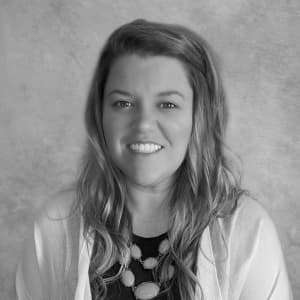Ask a Nurse: What Are the Hardest Classes in Nursing School?
In our Ask a Nurse series, experienced nurses provide an insider look at the nursing profession by answering your questions about nursing careers, degrees, and resources.
Question: What are some of the hardest classes students take in nursing school?
Answer: Many nursing students pursue a bachelor of science in nursing (BSN), which takes full-time students around four years to complete.
With science courses, laboratory requirements, and supervised clinical rotations, earning a BSN degree can seem daunting. Many students struggle with the difficult coursework, such as advanced scientific concepts.
We asked nursing professionals to offer tips and weigh in on what they consider some of the most challenging classes.
Hardest Prerequisite Courses
Prerequisite courses lay the foundation for more advanced topics in nursing students’ education. However, “prerequisite” does not necessarily mean “easy.”
Every nursing program requires students to complete the two courses below. These courses cover complex scientific concepts aspiring nurses need to know before covering illnesses, prescription drugs, and other nursing-specific topics. In fact, these courses may determine if nursing majors can handle the more challenging courses later on.
- Anatomy and Physiology (1&2): You may have taken an anatomy and physiology class in high school, but nursing professors expect students to learn about human anatomy on an advanced level. The curriculum covers topics like the skeletal, muscular, neurological, and cardiovascular systems, among other anatomical systems of the human body. This course very often comes with a lab component. Students use the scientific method to carry out lab work, which might involve dissecting an animal or observing tissues with a microscope.
- Organic Chemistry: Organic chemistry covers the natural processes that occur in carbon-carrying compounds. Students may learn about the effects of carbohydrates, proteins, vitamins, and drugs on the human body. Like anatomy and physiology, organic chemistry often requires a lab component.
Hardest Nursing School Classes
Once students pass their prerequisite classes, they begin advanced coursework that requires them to recall material from previous courses in anatomy, physiology, biology, and chemistry.
This coursework often involves substantial memorization and writing. Below are some of the hardest nursing school classes, according to nurses we spoke with.
Pathophysiology: In this course, students learn how different anatomical systems work and how diseases or injuries affect these systems.
“In practice, this directly relates not only to a patient’s medical condition, but also the medications your patient needs and how different illnesses will affect their overall health in relation to their comorbidities,” says Alaina Ross, an RN and expert contributor to Test Prep Insight.
Pharmacology: Pharmacology, or the study of medication, can seem scary because of the sheer scope of the course. “It becomes one of the hardest classes for nursing students due to the depth and amount of knowledge needed,” says Megan Lynch, RN and instructor at Pima Community College.
Lynch notes that pharmacology is one of the most difficult classes for nursing students, but is essential to patient care.
According to the FDA, there are over 20,000 prescription drug products approved for marketing. The CDC reports that 48.6% of people took at least one prescription medication in the last 30 days and 24% took three or more.
Students need to know the trade and generic names of medications, along with their classifications, reasons for use, and common side effects.
“Pharmacology goes beyond simply memorizing drug names, and forces learners to think critically about the drug and how it works within the patient,” Lynch explains.
This is a core class that builds on the student’s fundamental knowledge of nursing practice. No matter what specialty the student practices, they need this knowledge of pharmacology.
Medical Surgical 1 (also known as Adult Health 1): This course covers common disorders or other health problems in adults. Learners need a foundational understanding of certain anatomical concepts.
“This course is considered difficult because it is the first course where students must combine what they have learned in chunks in previous courses, and put it all together as they apply it to a disease process,” says Nicole Beaver, RN and instructor at Hunt School of Nursing at Gardner-Webb University.
Beaver offered several tips. Foremost is preparation. Students should compare the information in the book against the lecture slides. Pre-lecture questions from the instructor can help focus a student’s reading and study.
If the instructor does not offer pre-lecture questions, consider asking someone who already passed the class for their insights. Using a game platform to help with studying and learning may also be helpful.
“Answering practice questions in Kaplan and learning how to use Kaplan as a resource has also been helpful to most of my students, once they see that Kaplan is a necessary resource,” Beaver said.
Evidence-Based Practice: This course “involves taking a deep look at interdisciplinary healthcare research to establish a position on best-practice standards,” explains Laura Fero, Dean of Nursing at St. Catherine University.
“The nursing profession is based on science and new evidence is continuously being published,” Fero says. “This class offers the student the ability to analyze this to determine how best to treat patients.”
The course often involves a substantive amount of reading, and students need to write both scientifically and concisely on assignments. Because of these requirements, some learners find this course exceptionally demanding.
Fero offers several tips for students to be successful in this class. Nursing requires students to be inquisitive and willing to adapt, as does learning and incorporating the content from this class into their critical thinking.
“Students have to be motivated to search, read, synthesize, and apply their new knowledge. It may feel overwhelming at times, but trust what you have learned and be confident in holding the best standards of care for those you serve,” Fero said.
Technology can be overwhelming for some, and treatment modalities are constantly evolving. Students must be willing to grow in school and throughout their careers. What students learn in this course will help make them better practitioners.
“Be willing to ask questions and show your vulnerability. It is the key to a bright and powerful role as a professional,” Fero adds.
Tips on Acing Nursing School’s Hardest Classes
These classes may seem intimidating at first, but learners can earn a passing grade with the proper study tools and methods.
Break it down
Pace yourself rather than trying to learn everything at once — especially with classes requiring a high level of memorization. Instead, break down material into chunks.
“No one can learn 100 drugs in two days,” Lynch says. “But they can learn 10 drugs a day for two weeks.”
Look at your syllabus and physically break down the curriculum into daily sections. Focus on one bite-sized section each day while reviewing material from previous days.
Make flashcards
“Make lots and lots of flashcards and memorize the heck out of the different bodily systems and their processes,” Ross says about pathophysiology, although her advice applies to all classes.
Flashcards help you remember concepts when you study, and writing out definitions can aid in memorization. Additionally, using flashcards allows you to study with your classmates.
Learn prefixes and suffixes
“Many medical words — from anatomy to medicines — come from Latin, meaning words with similar definitions often share the same prefixes. This knowledge helps learners when memorizing prescription drugs in a pharmacology class.”
“You can chunk together many classes of drugs using their telltale beginnings or endings, such as ‘cycline’ or ‘caine,'” Lynch says. “These drugs are very similar, thus have many of the same side effects and nursing considerations.”
Get creative
Mnemonic devices are memory tricks and techniques that allow you to recall concepts through association; Lynch offers this example: “Motrin (Ibuprofen) helps me painlessly write papers, I-B-proofing.”Or, for instance, think about the word ACHES when considering the side effects of contraception:
- Abdominal pain
- Chest pain
- Headaches
- Eye problems
- Severe leg pains
Additionally, you can take advantage of the Picmonic website and mobile app that uses picture mnemonic devices for medical and nursing students.
Consider the “why”
The previous tips help you memorize facts for exams, but you should also consider the meaning behind each vocabulary word, biological process, and anatomical concept.
Classes like pharmacology involve more memorization. “Try to understand the “why” behind how medications work in certain scenarios and not in others,” Ross says. “Having a deeper understanding of the information behind the numbers will help you crush this class.”
Prep before class
Beaver recommends students review materials before class begins. Professors give students class curriculum plans so they know what to expect; use that to your advantage. Read ahead, make notes, and prepare any questions you have before the lecture.
Master time management
Manage your time. This is vital for anyone balancing school and work, but especially for nursing students.
Lynch brings up the concept of “chunking” again. “Learn to chunk,” she says. “Chunk drug classes, study time, and the overwhelming amount of material.”
If you struggle to manage your time, Fero advises you to pull through with perseverance and remind yourself why you want to become a nurse. “Students have to be motivated to search, read, synthesize, and apply their new knowledge,” she says. “It may feel overwhelming at times, but trust what you have learned and be confident in holding the best standards of care for those you serve.”
Meet Our Contributors

Nicole Beaver, MSN, RN, is an instructor at Hunt School of Nursing at Gardner-Webb University.

Laura Fero, Ph.D., MSN, RN, is the Dean of Nursing at St. Catherine University.

Megan Lynch, RN, MSN, CWON, is an instructor at Pima Community College, ADN nursing.

Alaina Ross, RN, BSN, has 10 years of experience as a pre-op and PACU nurse. Ross is also an expert contributor for Test Prep Insight, a test prep company that helps nursing students prepare for exams like the TEAS and NCLEX.
Related Pages

Nursing School Prerequisites: Courses & Requirements for Admission
This guide highlights the most common nursing school prerequisites. Learn more about what you’ll need before you apply to nursing school.

How Long Is Nursing School? Breakdown by Degree and Type of Nurse
The length of nursing school depends on your degree and program. Learn more about how long nursing school takes, including accelerated programs.

Your Guide to Nursing Entrance Exams
Many nursing programs require prospective students to take an exam. There are various nursing entrance exams, including the PAX, TEAS, HESI, Kaplan, and PSB.